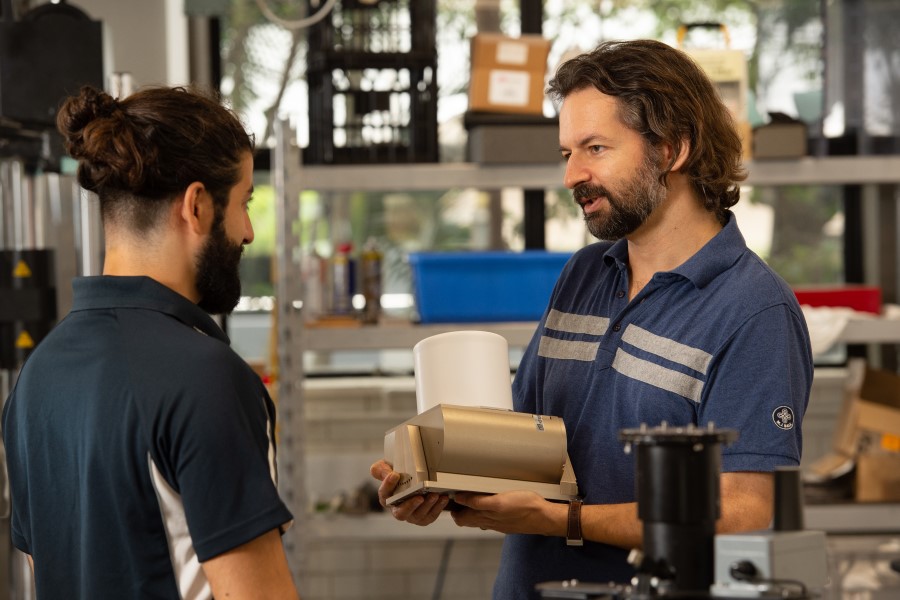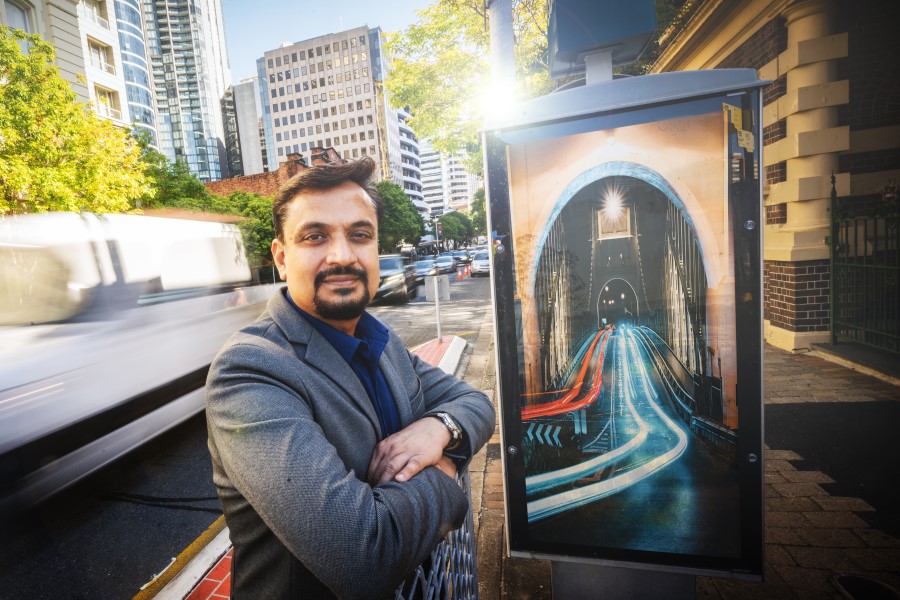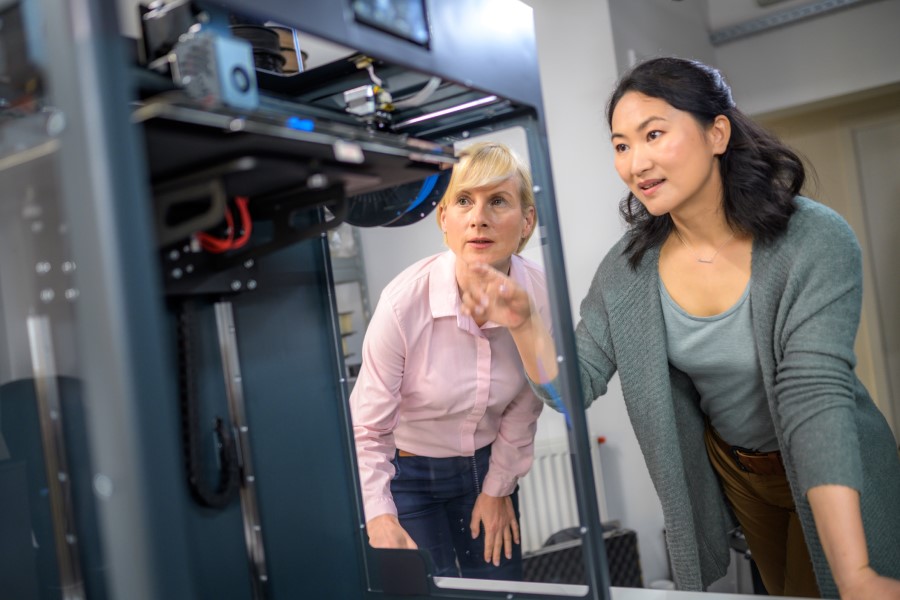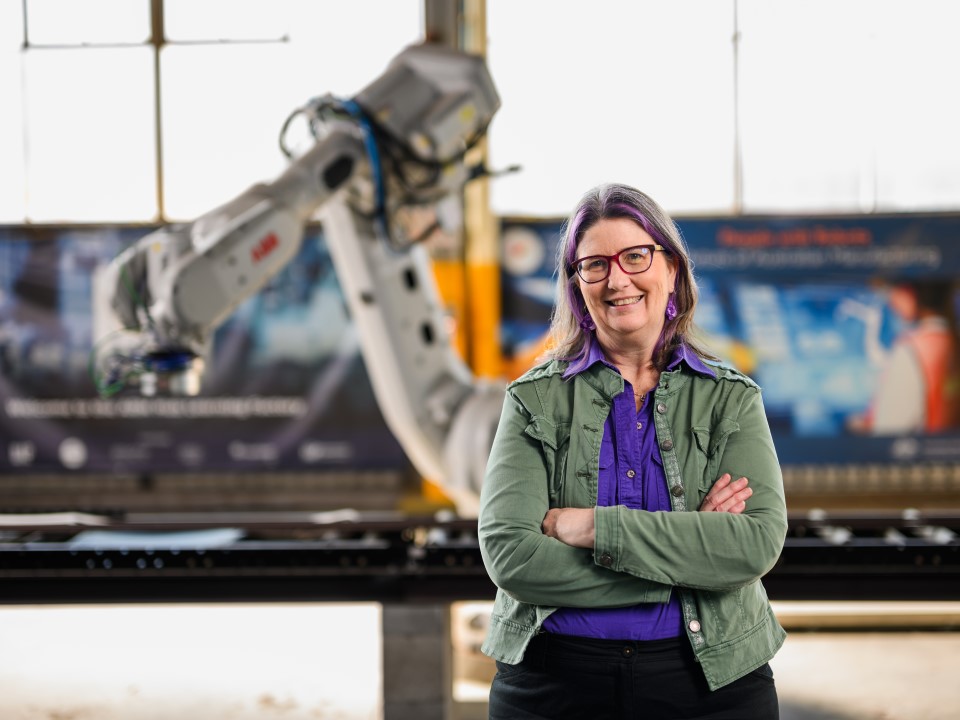The world evolves quickly. Develop your engineering career by upskilling in advanced manufacturing, renewable energy, robotics and artificial intelligence, or sustainable infrastructure. Join QUT experts online in the 'Engineering for the real world' webinar series to hear about the demand for skilled professionals in their areas of expertise, the key activities happening in this space, and the new QUT courses designed in response to industry needs to help you upskill and get ahead.
Engineering for the real world

Prepare for the robotics and AI transformation
The robotics and AI revolution is disrupting nearly every sector of the economy. Industries are looking to hire graduates with advanced skills in robotics and AI technology. Join QUT Associate Professor Thierry Peynot to learn how you can best prepare yourself for the robotics and AI transformation at Australia’s top-ranked research institution in robotics for the fourth consecutive year (The Australian Research Magazine 2023).
(Password: *cm1CY!4)

Energy transformation: learnings in renewable energy
Renewable power is at the forefront of energy transformation. Join Associate Professor Dezso Sera and Professor Mahinda Vilathgamuwa from the QUT School of Electrical Engineering & Robotics as they discuss the next generation of engineers and the technical, policy and management skills needed to address renewable energy fields.
(Password: hxVna2B%)

The future of engineering is sustainable
Sustainability engineering is one of the top 25 emerging occupations in Australia and demand for skilled engineers in this area is high. Professor Ashish Bhaskar is an expert in forecasting impending infrastructure problems and providing smart, cost-effective and environmentally responsible solutions that support a sustainable society.
(Password: =sgxn9#4)

Advanced manufacturing for net zero emissions and sustainable practices
Today’s digitally-enabled factories look very different. Develop manufacturing approaches that are human-centred, resilient and able to achieve sustainability. Create new bioprocess technology and respond rapidly to current and emerging local and global challenges. Hear from Associate Professor David Holmes in the final webinar of the series.
(Password: Y0^P+Et5)

The future of engineering
QUT’s innovative new engineering masters courses ensure you are ready for what the industry needs. Our degrees are built upon engineering principals of the future including net zero impacts, human-centric design, artificial intelligence and sustainability. You will develop the skills to become an innovative and in-demand engineer.
Master of Advanced Manufacturing
Top reasons to pursue an engineering postgraduate degree
Earn a promotion
Earning a masters degree will help you gain a higher position in your company and beyond.
Increase your earning potential
Masters degree graduates earn 35% more on average than bachelors degree graduates.
Future-proof your career
Ensure your job security by gaining skills in emerging technologies such as robotics, AI, renewables and automation.
Switch careers with confidence
Infuse your undergraduate knowledge with a new specialisation to pivot your career direction.
Expand your networks
In your course, you’ll work directly with representatives from leading engineering companies.
Become an expert in your field
Dive deeper into technical areas to gain specialised knowledge in your engineering career.